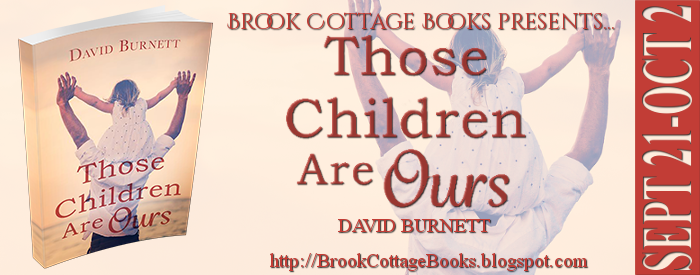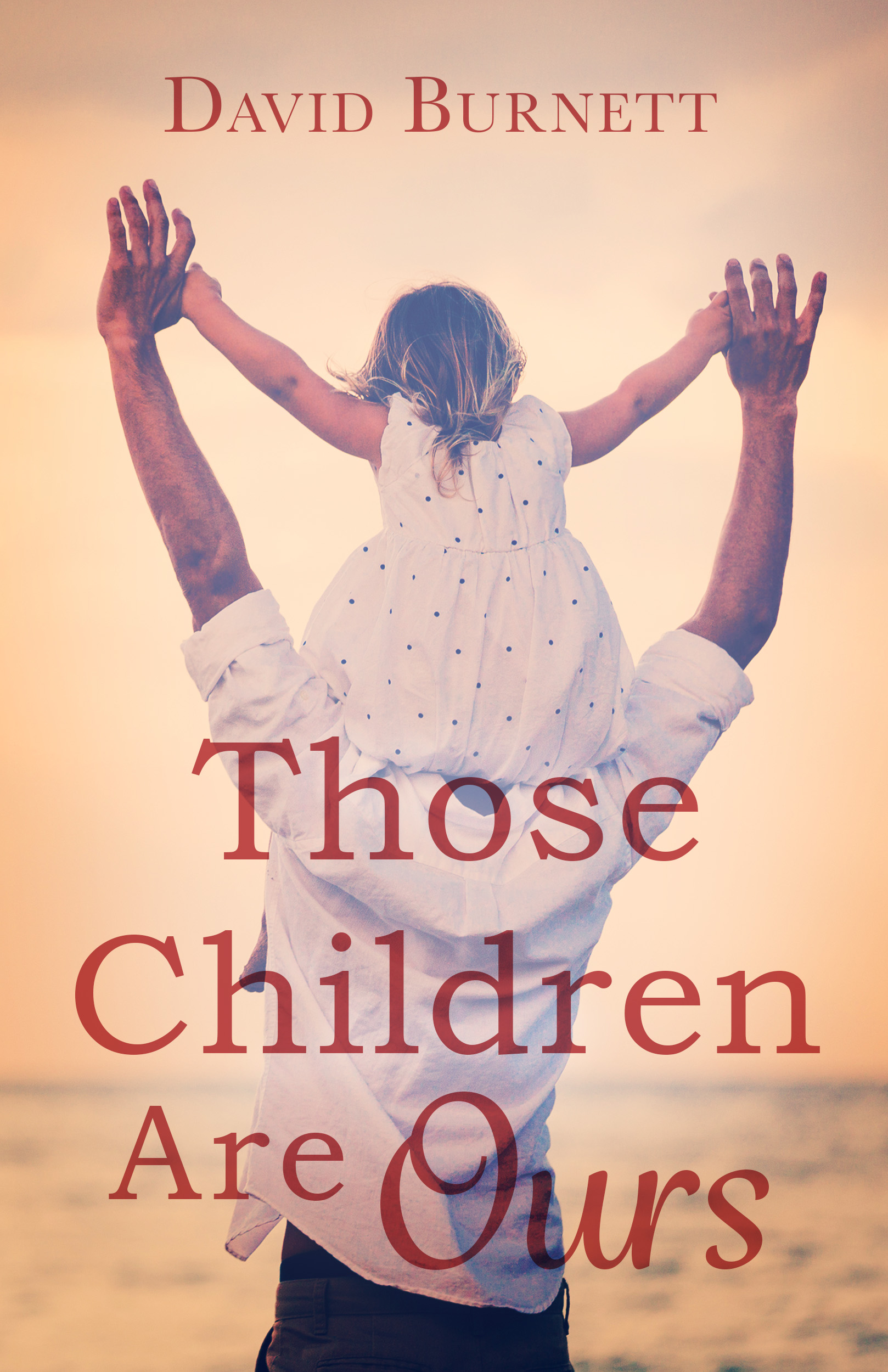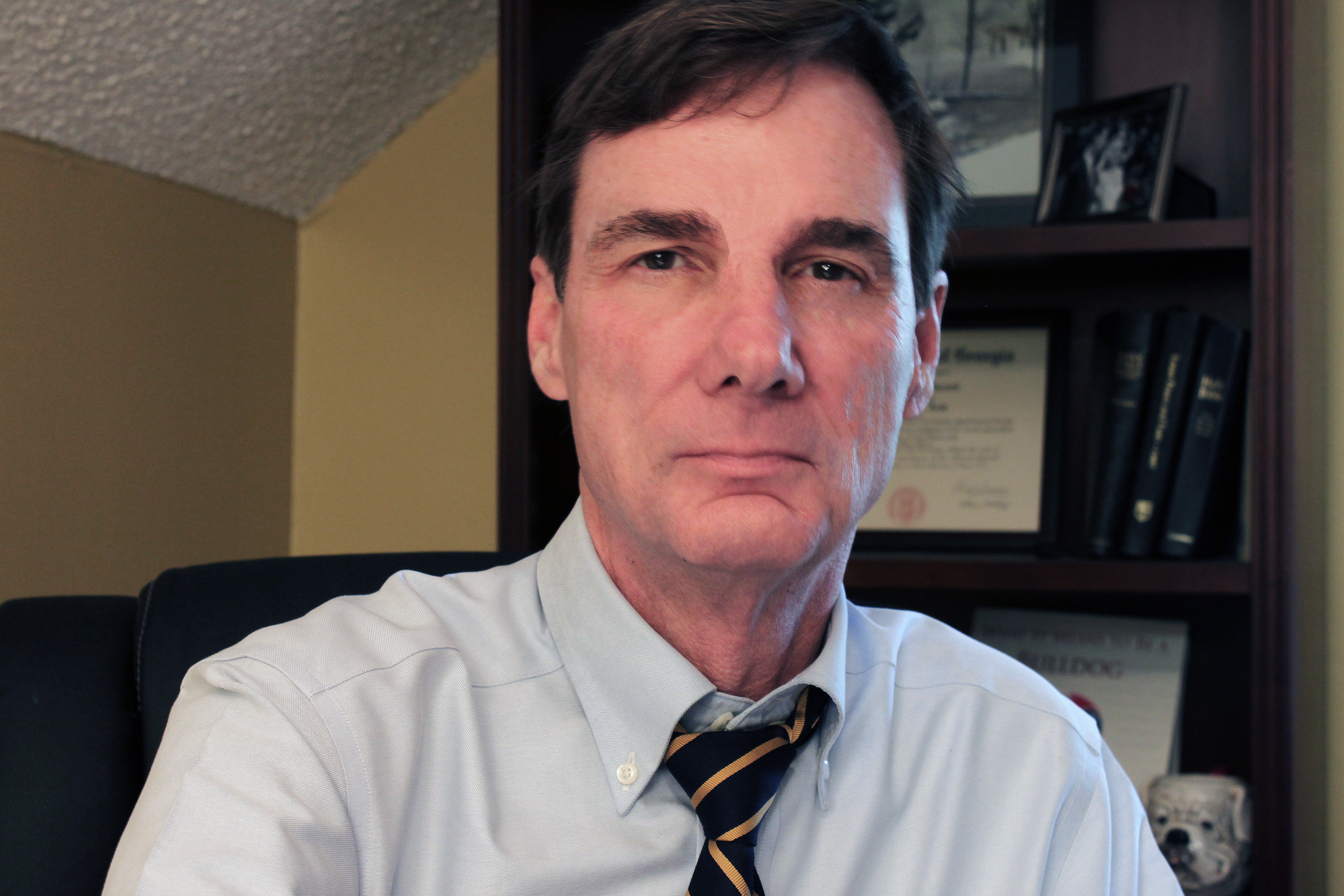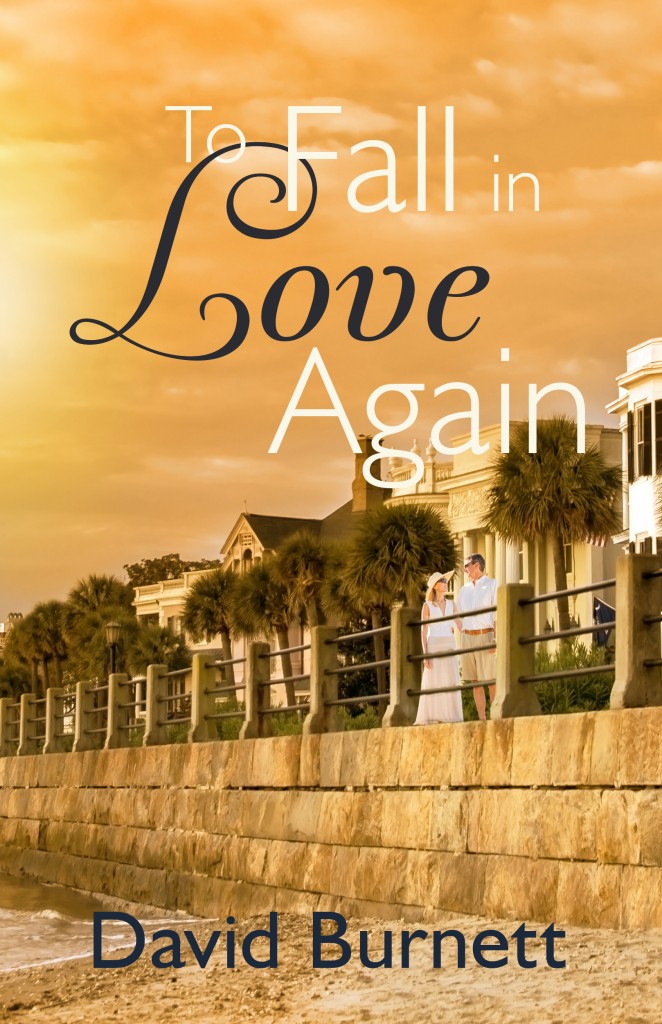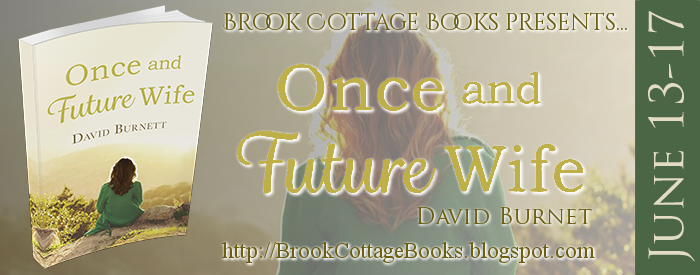
Once and Future Wife
by
David Burnett
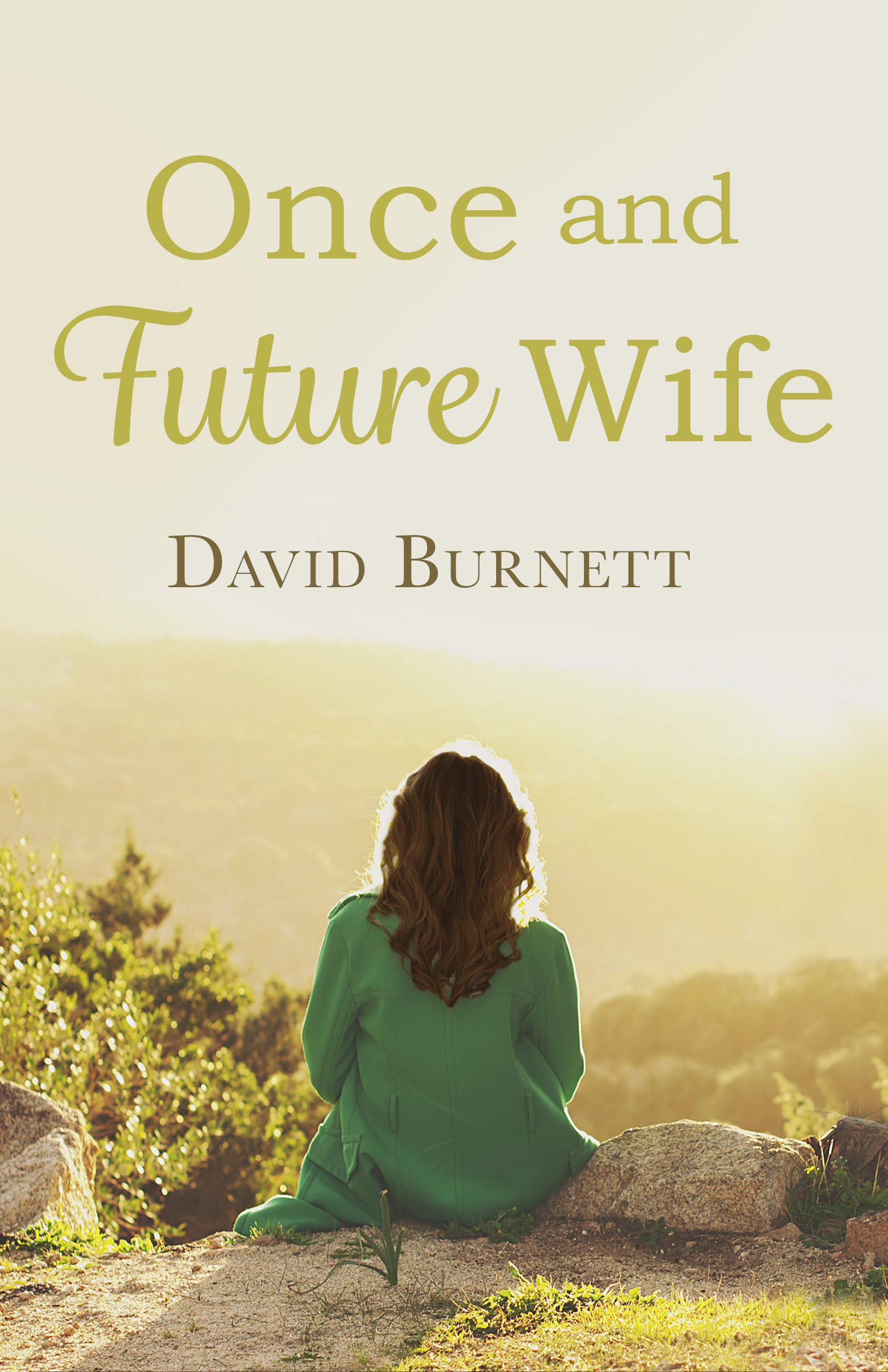
Genre: Romance
Release Date: June 1 (May 1 in paperback)
Jennie Bateman has again fallen in love with Thomas, her former husband. However, Tasha, one of his children, is determined to destroy their relationship. Jennie had done that herself a number of years earlier. In the midst of a manic episode, she had deserted Thomas and their two daughters, choosing, instead, a life of shameless debauchery.
Perhaps she was shocked when Thomas filed for a divorce. Perhaps it was the influence of a preacher who took an interest in her. Perhaps she simply cycled back toward normal. Whatever the cause, years later, when she again made contact with her family, she was a different person. Even so, they wanted nothing to do with her.
But time moves on. Circumstances change.
Thomas’s second wife has died, leaving him a single parent with four adult daughters and a new-born. In Jennie’s eyes, he is the same good-looking, kind, loving person she had fallen for when they were in college.
In Once and Future Wife we follow Jennie as she goes a second round with her demons, hoping to find a way to stop them from destroying the possibility of a second marriage and the love and happiness that finally seem to be within her reach.
**********
GUEST POST
Elements of a Story
Many elements come together to make a successful story. To me, four stand out as being of great importance.
Conception
“Where did you get the idea for your book?”
It has been said that every story is a variation on one of no more than thirty-six unique plot lines. This might well be true, but I know my stories do not begin with a perusal of the options!
I find this question to be a tough one, because I seldom can give an exact answer as to what gave rise to my particular variation on one of those plots. My stories do not begin with a plot but with my life experiences, with events that I hear about from others, with stories I see in the newspaper or on television. I’ve never taken a story directly from any of these, although my life experiences and other real events often appear in my books.
For example, I have read that one of my ancestors, Sarah Proctor, arrived in the US on board a ship that sailed from Belfast. It cast anchor in Charleston harbor on Christmas Eve, seventeen sixty-six. Sarah and her family were given land in the colony, tools, seed, and transportation to their new home because they had arrived under a program designed for “poor Protestant immigrants.”
If I were going to write a story, I would begin by imagining what might have happened to her. I know that , several years later, Sarah married George Adams. How might she have met her future husband? Why did they fall in love? Did they fall in love? What complications might have arisen to complicate their relationship?
Maybe instead of a story of how the two fell in love, it would be one of how their love survived some traumatic event, the American Revolution, perhaps.
As I would consider Sarah, various possible stories would emerge. As I begin to write, I need not know the entire story. In fact, I don’t want to know all of it. Creativity does not stop when writing begins, and I want to be able to incorporate new characters, new twists in the story that are triggered as the story takes shape.
In other posts I have explained the process of designing a story with a passage from the Second Chance Café.
The author writes of a young woman who weaves beautiful scarves. They sell in upscale stores around the country and are often seen wrapped around the bodies of movie stars and celebrities. Each scarf is unique. How does she decide on the colors, the pattern, for a new scarf?
“I don’t know how you do that,” her father said, looking at the collection (of yarn) she held and shaking his head.
Honestly, neither did she. To this day, she could not explain how the colors came together in her mind. How one flowed into another as she sat at her loom. How the different strands of story became a whole. “I just see it. I don’t know where it comes from. Any of it. It’s just there.”
This is how it is with writing. The author doesn’t know where the specific events come from. Any of them. The author begins to write − and they’re just there.
Commencement
We often use the word commencement to mean graduation and we think in terms completing school. Commencement also means the beginning, and it is in this sense that I’m using it here.
The inciting incident is not always the first event in the story. It is the event that sends the hero in search of what he wants. It is the event that sets up the crisis.
In Once and Future Wife, the book opens when Jennie learns that her daughter’s stepmother has died. While her death opens the possibility that Jennie might reconnect with Thomas, her former husband, it does not cause her to do so. It does not propel her in that direction.
After she attends the funeral, Jennie could have returned home, seldom thinking of him again. In most cases, that’s exactly what would happen. The inciting incident occurs when Thomas reaches out to Jennie, asking her to babysit his newborn child, and she agrees to do so. On that day, the crisis is set in motion.
If I were writing about my ancestor, the story might begin on the cold, clear night on which her ship reached the harbor. She might have gone on deck and looked up at the stars. She might have gazed at the lights of Charleston, wondering what her future held.
The inciting event though, would likely come later, perhaps when she and George Adams meet for the first time. Maybe their land grants are adjacent. They meet, but and the boundary is disputed. They take an instant dislike for each other, but the dispute guarantees they will continue to have contact.
Conflict
In The Ninety Day Novel, Alan Watt indicates that conflict is central to our stories. He tells his readers – aspiring writers – to put their characters in relationships with other characters and see what will happen. Conflict, he writes, will ensue.
Conflict can be external or internal. We generally identify four types of external conflict: Person against Person, Person against Nature, Person against Society, and Person against God. In each case, something outside of our hero thwarts his attempt to obtain what he wants. In Once and Future Wife, Jennie has fallen in love, again, with her former husband, but one of his children is determined to prevent them from marrying again. The conflict is person against person.
In an internal conflict, the hero prevents himself from attaining his goal. Again, In Once and Future Wife, Jennie’s bipolar disorder drives her behavior in such a way as to threaten her opportunity to find happiness.
If I were writing about my ancestor, it may be that Sarah finds George Adams to be handsome and kind and good. She begins to fall in love with him. But he is the man who she believes is trying to steal her land! He comes by the small cabin she has built and she meets him with a loaded musket, ready to defend herself and her property. That is conflict.
Conclusion
The writer should know the conclusion to his story as he begins to write. If he doesn’t, then his story will lack direction, go off on tangents, and never have an acceptable ending.
We see this phenomenon, we think, in several television shows we’ve been following this year (Castle and Black List, for those are familiar with the shows.). The writers have gone to quite a bit of trouble to develop likeable characters, set up a storyline, and to introduce a crisis, but they do not appear to be able to ever reach a conclusion.
New twists emerge in the plot. The characters are quite busy chasing the bad guys, but, as the end of the season approaches, the crisis has not been resolved. One has the feeling that the writers set things in motion with no clear idea, perhaps no idea at all, of where how they were supposed to end. As a result, they have gone nowhere, and we feel sure that the season finale will not be satisfactory at all.
Books can suffer from these same problems. A conclusion should not be simply the last word written on the page. It should not simply be a cliffhanger designed to lead the reader into the sequel. At its conclusion, the reader may not be happy with the outcome, but she should be satisfied. The outcome should make sense in terms of the story and the hero, the main character, should have found what she needs.
If I know that Susannah and George will marry at the end, then this knowledge guides my writing. In spite of which roadblocks appear, I must leave a way over them or around them. It may appear that their relationship is doomed. Perhaps Susannah decides to marry someone else. Perhaps she wants to move to the city. Maybe she decides to sail home. Any of these can occur, but in the end, the two must marry.
**********
ABOUT DAVID BURNETT
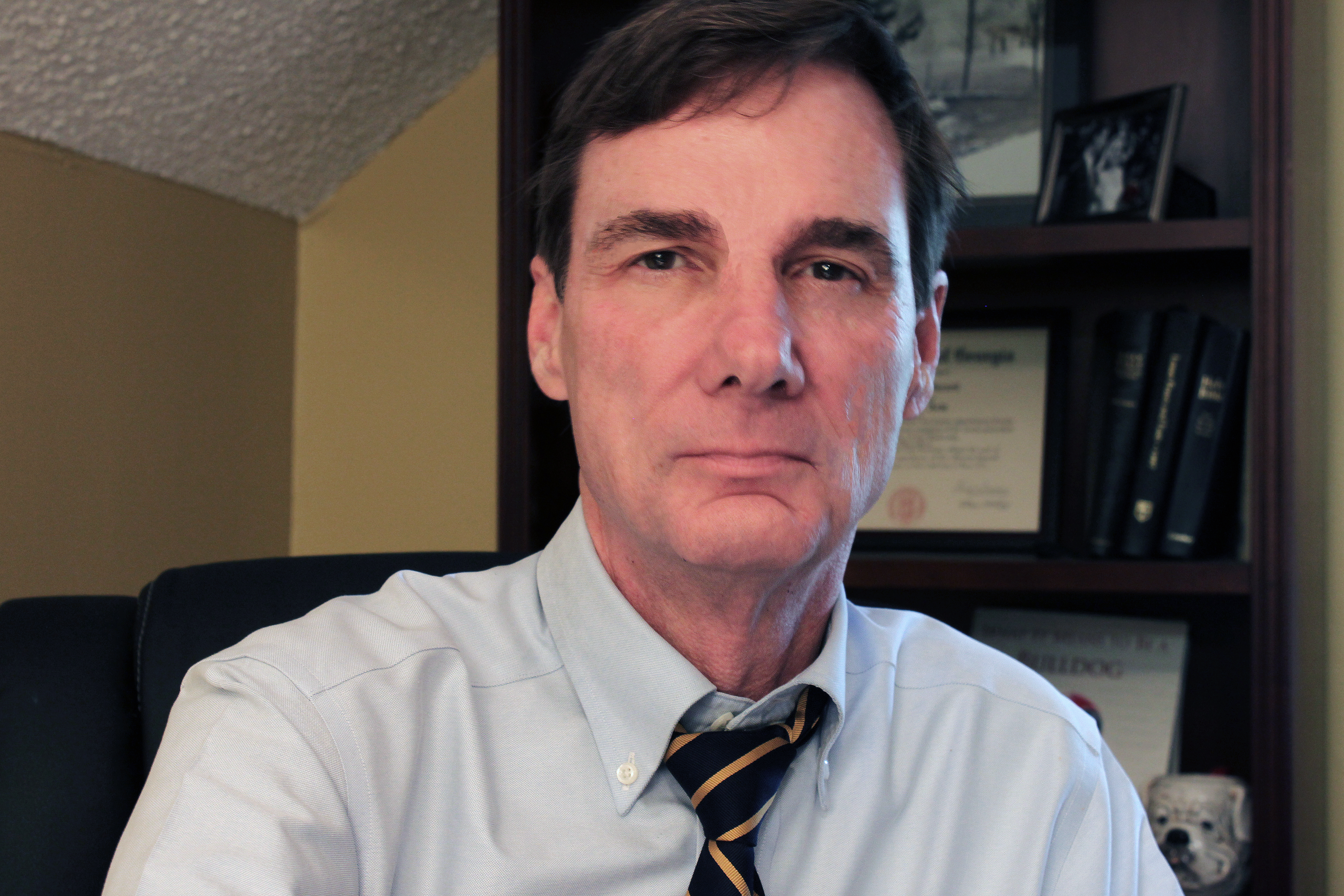
I live near Charleston, South Carolina, with my wife and Bonnie, our blue-eyed cat. I enjoy traveling, photography, baking bread, and the Carolina beaches.
We have traveled widely in the United States and the United Kingdom. During one trip to Scotland, we visited Crathes Castle, the ancestral home of the Burnett family near Aberdeen.
My photographic subjects have been as varied as prehistoric ruins on the islands of Scotland, star trails, sea gulls, and a Native American powwow. I went to school for longer than he wants to admit and has graduate degrees in psychology and education. I was formerly director of research for our state’s department of education.
Facebook:
http://www.facebook.com/DavidBurnett.Author
Twitter:
https://twitter.com/DavdBurnett
Goodreads Author Page:
https://www.goodreads.com/author/show/6579272.David_Burnett
Blog:
http://davidburnett.yolasite.com
Website:
http://davidburnett.yolasite.com
Amazon Author Page:
http://amazon.com/author/davidburnett
**********
GIVEAWAY
$20 or equivalent Amazon Gift voucher

